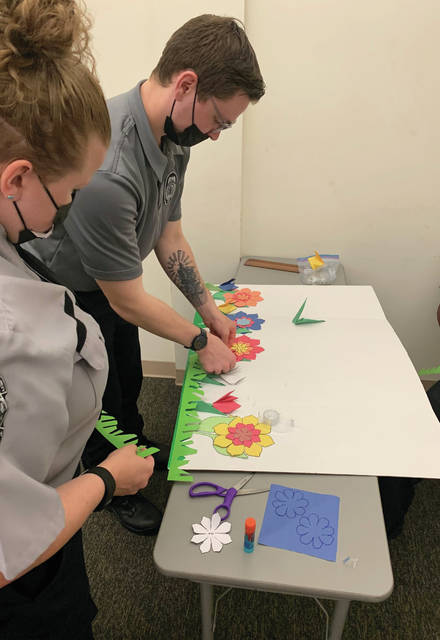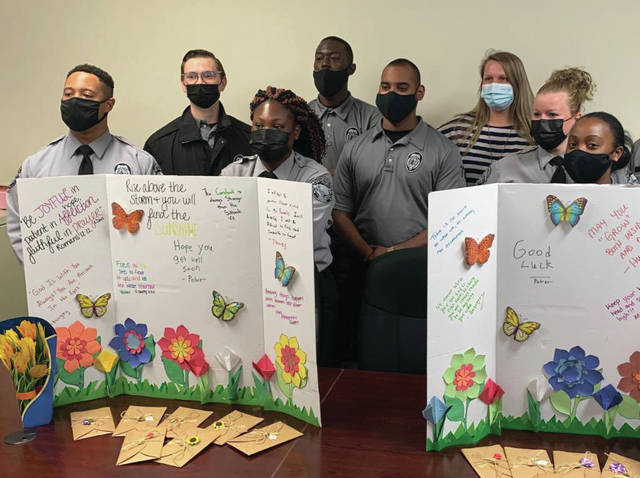
N.C. Prisons correctional officer trainees Adrienne Hucks of Anson Correctional Institution and Zachary Krisinski of Albemarle Correctional Institution assemble a 3-D poster encouraging survivors at the Anson County Coalition for Domestic Violence on Monday, May 3.
Contributed Photo
WADESBORO — North Carolina Prisons Correctional Officer Trainees donated to the Anson County Domestic Violence Coalition during the six-week course held at South Piedmont Community College on May 3.
The Correctional Officers Basic Training (COBT) course is held year-round across the state. During this time, COBT teaches certain skills that will help them perform their job successfully, such as crisis intervention, conflict resolution, first aid, CPR, firearms, defensive techniques, expandable baton, reports and working as a team.
Just this year, the COBT curriculum added a community service aspect in which each class decides which community organization to aid.
The COBT Class 39, the 39th session of 2021, decided to send cash donations to the Anson County Domestic Violence Coalition as part of their community project. Cadets also decorated colorful and encouraging posters and envelopes to disperse the donation for their daylong team-building activity, a required component of the curriculum.
Anson County Domestic Violence Coalition was created in 1998 with a mission to provide a safe, compassionate, non-judgmental atmosphere for victims and survivors of domestic violence, family violence and sexual assault. The group offers a 24-hour confidential crisis line, counseling, hospital accompaniment-health advocacy, court accompaniment-legal advocacy, emergency transportation, support groups and more.
The N.C. Department of Public Safety partners with different community colleges across the state to offer venues for regional COBT sessions. The COBT Class 39 was held in Wadesboro at South Piedmont Community College.
“Response so far to the community service provided by our COBT cadets has been overwhelmingly positive,” Brad Deen, NCDPS Communications Officer, said. “The communities benefit, as do the trainees. The proof of having accomplished something meaningful together helps the class develop a sense of camaraderie and shared mission, which will make them better Corrections Officers. Prisons and DPS benefit from that, as do the community and the entire state of North Carolina.”

